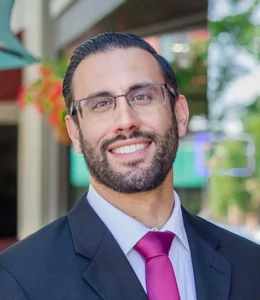Why You Need a Trial Attorney
Why do you need an experienced litigator if you're just going to plea the case out? A trial attorney is capable of taking something past the initial round of plea negotiations, file motions, and ultimately try the case. That's why you need an experienced litigator - because when plea negotiations break down, we have to fall back to fighting the case, filing motions to suppress, and filing motions to dismiss.
Our Olathe trial lawyers ultimately have to start teeing up for trial, and even down the line, we're trying to set it up for appeal. The idea is that even if you do want to plea out, sometimes the prosecutor wont give us an acceptable offer, but a trial attorney is able to push the matter and get plea offer that’s acceptable.
What Is a Plea Agreement?
A plea bargain is when the defendant agrees to enter a plea other than not guilty to one or more of the charges against him or her or to a lesser charge. In return, the defendant receives some benefit such as a less sever charge, probation, shorter prison sentence, or other consideration.
A plea bargain is negotiated between the defense attorney and prosecutor and then formalized at a court hearing. A plea bargain ends the case, and there is no trial or further court appearances other than a possible separate sentencing hearing.
How Often Are Cases Resolved With a Plea Bargain?
Although popular TV shows and movies may make it seem like a criminal case is destined to go to trial, immediately after an arrest is made and charges are filed, In truth, across the country, less than 5% of cases make it to jury trial. Nearly all are resolved with a plea bargain. Since you or your loved one will almost certainly be offered a plea bargain, read the FAQs below to learn about the process.
The Four (4) Different Types of Pleas
With a few exceptions, any kind of plea you can image is possible: dropping the case, probation instead of prison, misdemeanors instead of felonies, plea to “this” charge and not “that” charge. The question is not, “can” the question is “will.” The question is not “can we do this kind of plea?” the question is “will the prosecutor agree to this plea?”
The defendant denies they charges, and wishes to contest them. Generally, all defendants enter a plea of not guilty initially.
Indicates that the defendant accepts the charges against him. The defendant can plead guilty to all of the charges, some of the charges, or to a lesser charge if one is offered. A guilty plea results in a conviction of that charge with the same effect as being found guilty by a jury. If a defendant pleads guilty to only some of the charges without a plea deal in place, the case will continue for the other charges.
Is effectively the same as a guilty plea in criminal court. However, in a civil lawsuit, it cannot be used as evidence of an admission of guilt because it literally means the defendant did not contest the charges, and not that they admitted to them.
Alford plea is a guilty plea in criminal court, the defendant in a criminal case does not admit guilt and declares innocence. Although, the defendant does believe that the evidence the prosecution has will most likely persuade a judge and/or jury that the defendant is guilty beyond a reasonable doubt.
Different Types of Plea Bargains
The negotiation of specific criminal charges where the defendant will plead "guilty" to a lesser charge than the original or most serious charge. In exchange for a guilty plea, the prosecutor will dismiss the more serious charges.
Defendants who face multiple charges may be allowed to plead guilty to fewer counts. The charges need not be identical: the prosecutor may drop any charge or charges in exchange for a guilty plea on the remaining charges.
The Prosecutor may provide alternative sentences in exchange for the defendant pleading "guilty". In a common example defendants will often plead guilty to Murder out of fear of receiving the death penalty.
Prosecutors and the defendants will bargain over which version of events will be presented to the court. The Prosecutor will not challenge the events when presented in court.
Here, the defense and prosecutor have agreed on which charges will be plead to, but have not agreed on disposition. Often, in this scenario, the parties will be arguing over prison vs probation, or the length of a prison sentence.
Even though only a small number of cases go to trial, the court system is overloaded. Judges promote plea bargains to keep cases moving. Prosecutors seek plea bargains to guarantee convictions, keep themselves from being overwhelmed with cases, and bring closure to the victim of the crime and their family.
Defendants accept plea bargains because the deal is better than the worst outcome they would face at trial and to bring the case to a close so they can move on with their lives.
Part of the reason for reduced sentences is to encourage defendants to take a guilty plea. In addition, a defendant who pleads guilty is seen as taking responsibility for their actions and showing remorse, and the justice system believes that they should be punished less harshly than someone who refuses to admit guilt and forces the state to take on the time and expense of a trial.
In Federal court, defendants receive an explicit benefit for pleading guilty and “accepting responsibility.” Under the Federal Sentencing Guidelines 3E1.1, a defendant who accepts responsibility will receive up to a 3-point reduction in their sentence. Also, pleading out early in Federal court can result in an additional 3 point reduction under the Fast Track program. Thus, in Federal court, a defendant can receive significant reductions in their sentence by accepting responsibility and plead early.
Plea bargains are legally available in all cases. However, many prosecutors' offices have policies against offering plea bargains for certain types serious of crimes or under other special circumstances such as a repeat offender. Similarly, many offices have standard offers for less serious crimes. There is also no guarantee that the offer made will actually be more desirable than taking a chance at trial.
For a variety of reasons, DUI’s are one charge where the prosecutor will not dismiss. Thus, any plea in a DUI case usually involves dropping other counts, and a sentence agreement.
A plea bargain can be made at any time from arraignment until the jury reaches a verdict. As a practical matter, most prosecutors set an earlier deadline on plea deals or make the offer less favorable as the trial date approaches and they have to spend more time on the case.
A defendant waives many constitutional rights when they accept a plea bargain. This includes their right to a jury trial, their right to confront the witnesses against them in court, and their right to appeal. They also waive any constitutional challenges to the evidence against them, such as an argument that they were only arrested because of a search that violated their Fourth Amendment rights.
In Kansas and Missouri state courts pleas are “non-binding.” Meaning: a Judge does not have to follow a plea. Typically, a Judge will follow a plea, but they do not have to. Theoretically, the Judge can break the plea for or against a defendant. Since a Judge can only pronounce a sentence within the rules of the law, a well-crafted plea can be done in a way that “ties the Judge’s hands” and does not leave them any room to break the plea.
In many of cases, sentencing happens weeks or months after the plea is taken. This means, you will not know whether the Judge is going to follow a plea until sentencing.
In Federal court there are two kinds of pleas: “binding,” and “non-binding.” In a binding plea, under Rule 11(c)(1)(C), the Judge announces whether they will follow the plea before imposing a sentence. If they announce that they will not follow the plea the defendant is allowed to withdraw their plea.
There is no legal requirement to have a lawyer to enter a plea. However, a plea involves the waiver of important rights, and the fairness of an offer must be weighed based on the strength of the evidence, any legal arguments for excluding evidence against the defendant, and what offers have been made on similar cases in the jurisdiction. This makes the advice of an experienced Olathe lawyer very important.
While a defendant would be foolish to completely ignore their lawyer's advice, the defendant has the absolute right to make the final decision. Often, this decision rests on how they feel about the risk of receiving a harsh sentence after trial versus the possible consequences of pleading guilty now.
Yes, in an “Alford” plea, a defendant can enter a plea of guilty while maintaining their innocence. This requires they intelligently conclude it’s in their best interest and wish to receive the benefit of the bargain.
Yes, you can ask the court to let you withdraw your plea. Kansas distinguishes between withdrawing a plea before or after sentencing. To withdraw a plea before sentencing, the burden is on the defendant to show “good cause.” To withdraw a plea after sentencing, the burden is on the defendant to show “manifest injustice.”
Our Kansas Criminal Defense Firm Can Help

Vincent Rivera, Kansas Criminal Defense Lawyer
Vincent Rivera, the founding attorney of Rivera Law, specializes in telling the complete story when you're charged with a crime. The legal system often doesn't hear the full narrative of the accused, focusing on pleas and confessions instead of understanding the individual at the heart of the case. Vincent, however, believes that you are more than their version of the story. He takes the time to learn about you and what happened, ensuring your voice is heard in court.
With extensive experience in both State and Federal courts, Vincent has handled a diverse range of cases, including domestic battery, drug possession and distribution, DUIs, federal crimes, and felony murder. He's not just familiar with these charges - he's an expert who trains law students and other attorneys how to be effective litigators. This deep understanding of the law and the courtroom allows him to answer the question "Can we do better on our own?" confidently. He can evaluate the strength of your legal and factual defenses and make an informed decision about whether going to trial is in your best interest.
Vincent Rivera's approach to legal representation goes beyond his expertise and experience. He is a dedicated attorney, consistently pursuing top-level training throughout his career. This commitment is reflected in his work ethic; he doesn't just rely on his past experience. Instead, he constantly trains, learning the best techniques from experts in the field. His dedication assures you that when negotiations break down, he won't be just another attorney. He'll be your tireless advocate, trained and ready to fight for your rights in court. His dedication has not only resulted in successful outcomes but also earned him the Kansas Legal Educator Award twice.
When you choose Rivera Law, you're not just hiring an attorney; you're gaining a dedicated advocate who will tirelessly fight for your rights.

